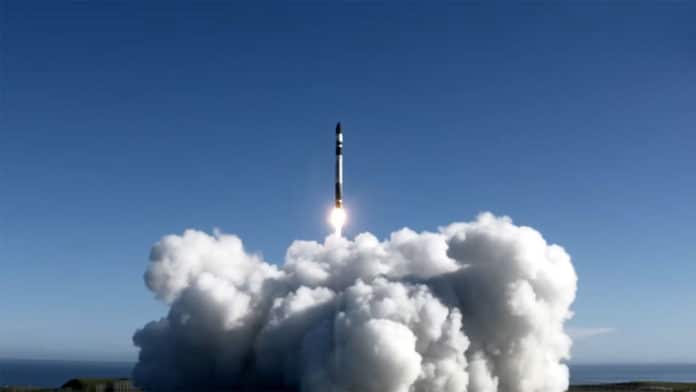Rocket Lab, a private American aerospace manufacturer, and small satellite launch service provider has successfully launched its 14th Electron mission from Rocket Lab Launch Complex 1 on New Zealand’s Māhia Peninsula on 31 August 2020. The mission that Rocket Lab dubbed “I Can’t Believe It’s Not Optical”, was the young space startup’s fourth this year and takes the company’s total number of satellites deployed to 54.
About an hour after takeoff, the Electron deployed a single microsatellite to a circular orbit at approximately 500 km for the San Francisco-based company Capella Space. This 100 kg satellite called Sequoia is the first synthetic aperture radar (SAR) satellite to deliver publicly available data from a mid-inclination orbit over the U.S., Middle East, Korea, Japan, Europe, South East Asia, and Africa.
The innovative SAR satellite technology overcomes the limits of the optical imagery used in other commercial satellites. Sequoia will be positioned in a 45-degree inclination. Unlike optical, SAR can see through clouds, in all weather conditions and even at night, and detect sub-0.5 meter changes on Earth’s surface. When fully deployed, the satellite constellation will offer hourly coverage of every point on Earth.
Sequoia will provide insights and data that can be used for security, agricultural and infrastructure monitoring, as well as disaster response and recovery.
It was the first flight of the Electron rocket since a failure nearly two months earlier, when the rocket for the first time in the company’s history failed and was lost along with its seven satellites. An investigation concluded that a “faulty component in the electrical network” in the upper stage had caused a loss of power in many systems and subsequent engine shutdown.
